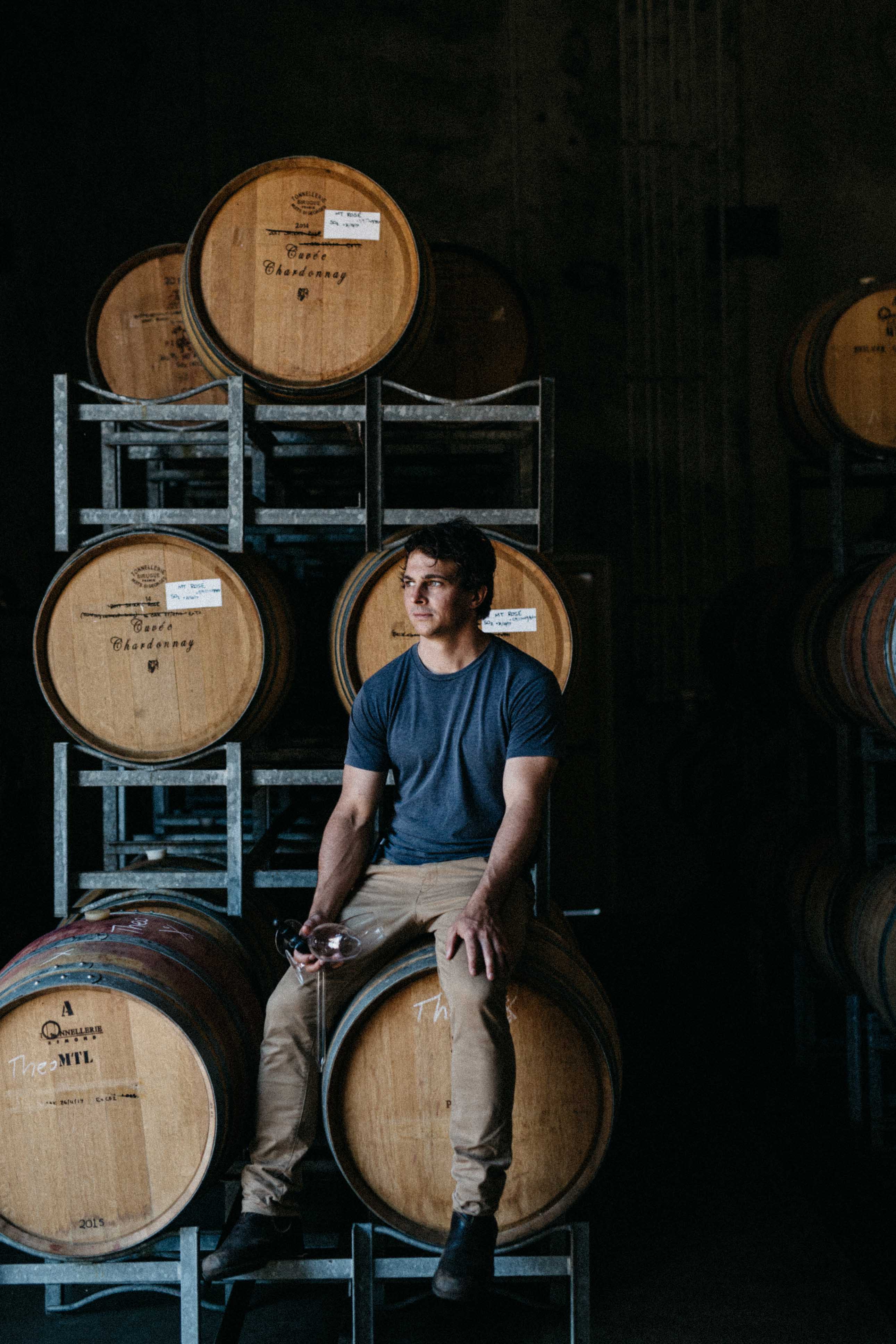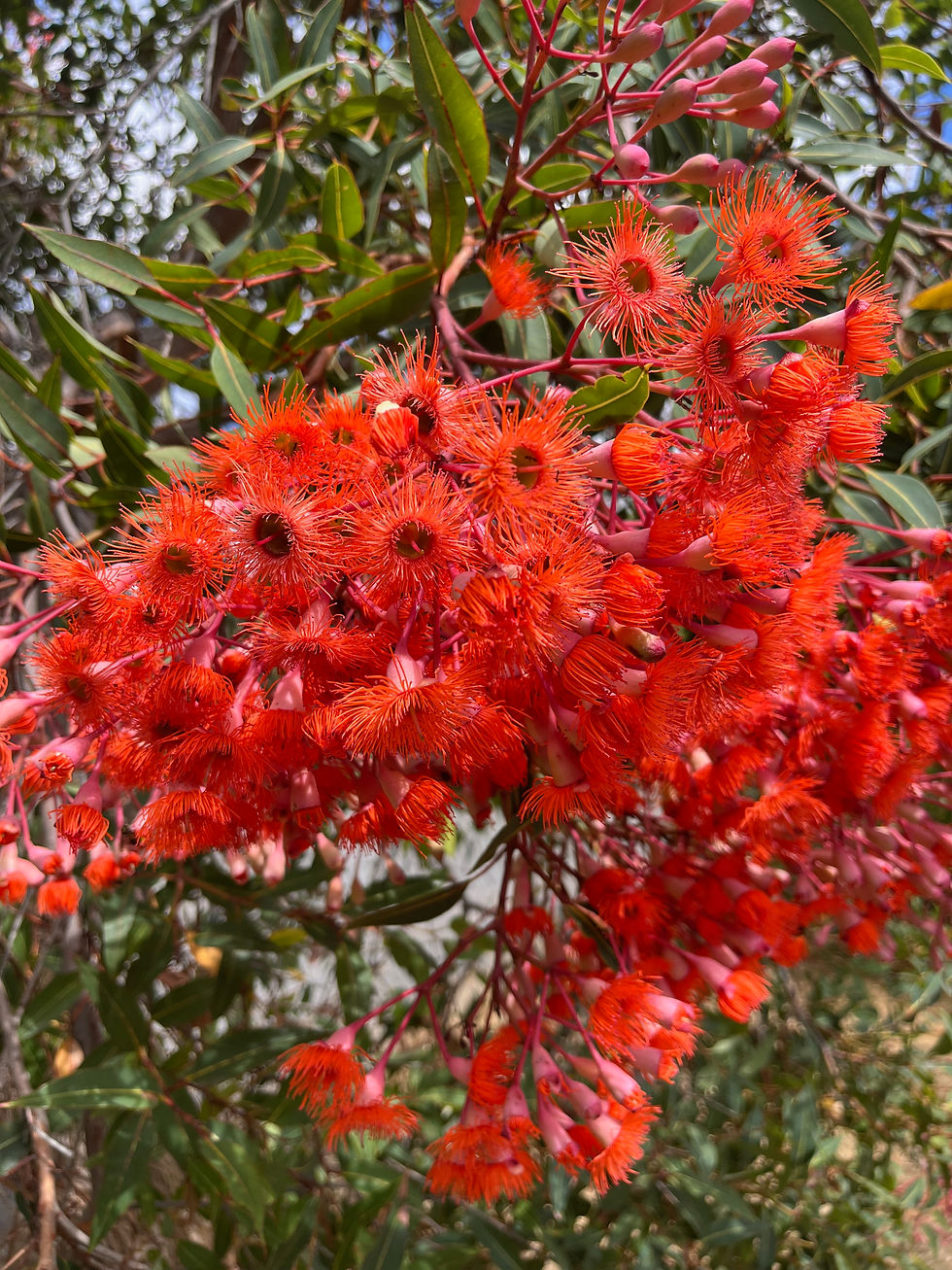The International Chenin Congress
- L.A.S. Vino

- Dec 19, 2022
- 5 min read
In November 2022 we were invited to South Africa to speak at the International Chenin Congress. 300 delegates attended from around the world. Below is a transcription of the speech I gave on the final day of the event. More information on the event here.

In 2011 I was studying a masters in oenology at the university of Adelaide. A South African winemaker named Bertus Fourie visited the class and brought a representation of some of the best wines from South Africa for the students to taste. Until that point I had never tried a wine from South Africa. It was the day I tasted a chenin blanc that changed the trajectory of my life.
Up until that point, my family had always grown Chenin Blanc in Margaret river, 3 km from the Indian Ocean in rich gravelly loam soils. We put the grapes into a cheap, off dry wine and blended it with Riesling and Sauvignon Blanc mimicking the Amberley style . My experience with the variety mirrored many in Australia at the time, a grape most associated with sweet or semi sweet wine. Known as a gateway drug for young teenagers to get into wine. Cheap, sweet and easy.
Although having a rich history in our country, besides a few notable exceptions, at the time it was a variety that producers didn’t touch and drinkers didn’t understand or know.
Back at the University tasting. I sipped on this chenin blanc that blew my mind, as Bertus talked about old vines, treating the grape with care, the methods of production and notable terroir. A lightbulb turned on .
If Chenin Blanc can taste this good, why aren’t Australians producing it.
We have the history
We have a relatively large amount of mature low yielding vines planted in good sites.
We have the winemaking skill and technology
Why wasn’t there more people making it?
When I asked winemakers in Australia about chenin they said they loved making it but no one in australia would buy. It was too hard to sell. When I asked sommeliers. They said they loved the variety, particularly French Chenin but there was no one in Australia producing it. It was always a hard hand sell.
It seems difficult to comprehend sitting here at an international chenin congress, but at the time in Australia chenin blanc was a nothing varietal that nobody wanted to drink.
And given that context. We decided to produce a Chenin Blanc.
The thought was, if we
-sourced fruit from incredible existing sites with mature vines.
-Treated the grapes with care in the winery and vineyard,
-make a style that people wanted to drink
-packaged the wine well and sold the story of why the variety was so special we could make it work.
It was a bad time to be making wine in Australia. There was a grape glut, the Australian dollar was at historic highs against the US dollar so exports were down and the world was recovering from the global financial crisis. But every cloud has a silver lining.
Because of this, historic fruit contracts had been broken. Fruit was cheap, so cheap that in the first year a grower told me that if I paid for the picking I could have the chenin for free.
In the first few years in Australia it was impossible to sell. Most distributors told us to stop making it. Stock built up, so much so that we didn’t make it the following year. It was too much of a risk given we hadn’t sold the first vintage.
-Notable Australian Somms told me that I should give up.
-“Nobody is going to buy your chenin, we will just buy French”
-Drinkers in Australia kept asking why it wasn’t sweet.
-Bottleshops didn’t want to take a wine that people didn’t understand or buy.
We thought about giving up.
Then an order came in from the England. The UK market was much easier because South Africans and French had done the ground work. Drinkers understood the variety , its versatility, its flavour . We sold the majority of our production to one market in a single year and came back to Australia with a new confidence.
The natural wine movement had momentum in Australia and lot of younger new wave producers chose to work chenin. There was fruit available, and the fruit was often a third of the price of Chardonnay, and made wine of equal quality. The market just needed to know.
In early 2019 an explosion of Australian Chenin Blanc entered the market, with a groundswell of young enthusiastic producers telling whoever would listen about how good the variety is and why we should all drink more of it.
At the same time we decided to host an international chenin Blanc symposium … and sausage sizzle. With modest aspirations. the aim of benchmarking west Australian chenin against the best in the world and to create a broader awareness of the variety within Australia.
That’s when Ina got in touch. We put out a press release without any research saying it was the worlds first international chenin Blanc symposium. Ina kindly corrected me . And told me about your incredible event and a friendship has blossomed with Ina sending South African wines to symposium in Australia
In the first year it was difficult to find enough local producers for the event, Now there are so many local producers we have to be selective. What we have found over the last 3 years of hosting the event.
In regards to Viticulture
old vines matter
An ability to express terroir
Dry grown and organics seem to have more concentration of flavour
Ability to hold acid
In regards to winemaking
Diversity of styles and methods but it only works with an attention to detail.
Treating the grape with the care and attention it deserves matters
A focus on quality over volume is essential to the marketing of the variety .d Volume can be the eventual result of quality, not the other way round.
We have seen this growth in popularity being a win at every level of production,
where before growers were giving away the fruit they are now getting higher and higher prices.
New regions in Australia are planting the variety because it’s economically and environmentally viable.
Drinkers are enjoying it as they are getting incredible value and quality.
on the marketing side having more producers involved making more and more chenin in Australia didn’t mean less pie. It meant the pie became larger with more people contributing. Leading to more domestic sales of chenin blanc and more people searching for international expressions of this incredible variety.
12 years ago, tasting a South African chenin Blanc and listening to the story of what made it so special changed the trajectory of my life. Here we are 2 Australians of 200 guests speaking at an international chenin congress . I hope that as a group we can collectively learn from this event and produce more incredible chenin blanc.
Hopefully there is a student out there this afternoon tasting one of the wines and it inspires and changes the trajectory of their lives like it did mine.
Being here confirms that working Individually, our voice is a just a whisper Collectively we can shout. One producer or one country doesn’t sell Chenin Blanc.
Together we can conquer the world.





Comments